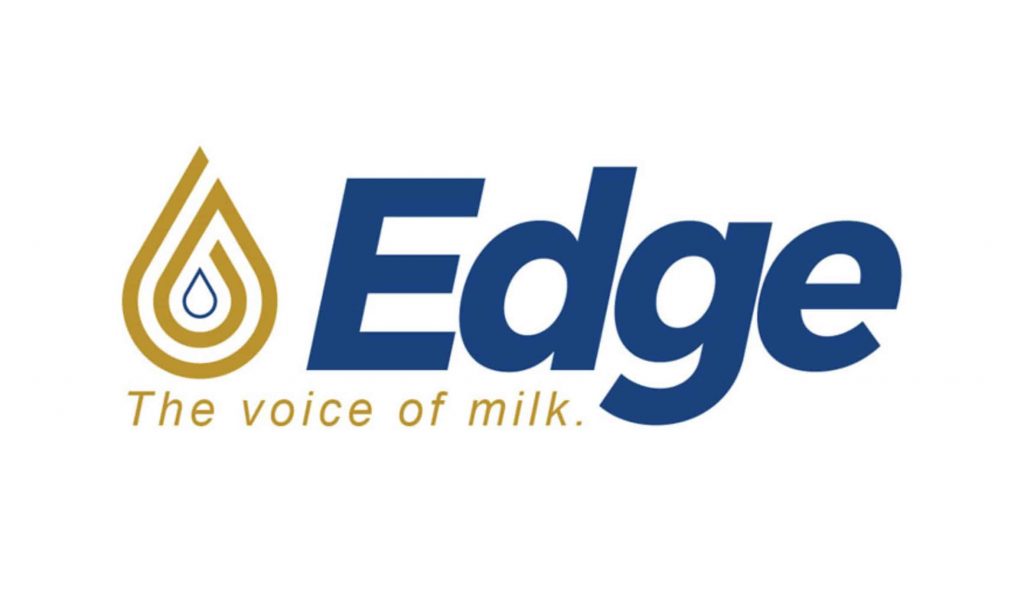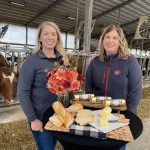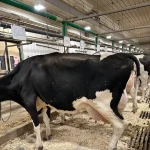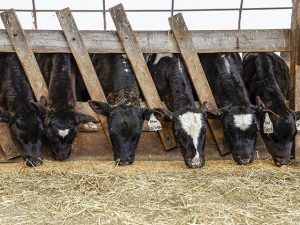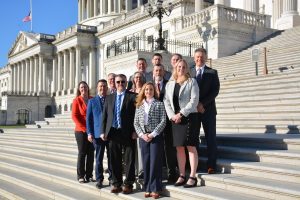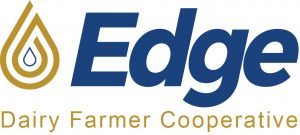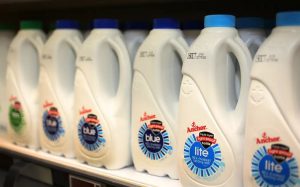
Many farmers have voiced their support for proposals put forth by Edge Dairy Farmer Cooperative, one of the largest dairy co-ops in the country, in the Federal Milk Marketing Orders hearing. Edge’s proposals focus on improving price discovery, maintaining strong risk management and sustaining federal orders to benefit the entire dairy community.
“Edge brought forth proposals with farmers in mind and sought compromises among the national interests of farmers, processors and consumers,” said Edge CEO Tim Trotter. “Our farmers believe a strong dairy community requires compromise and an eye toward the future.”
Edge also submitted its standalone improvement to milk pricing — Class III Plus — which would, among other things, tie the Class I (fluid) skim milk price to the Class III (cheese) skim milk price, plus an adjuster, and remove advanced pricing — a leading cause of negative producer price differentials. These two changes maintain the ability for Class I hedging by industry participants while also creating a mover based on the most-traded commodity in dairy — cheese.
Today, the average-of pricing system moving the Class I price has the benefit of hedging throughout all products but places all downside risk on farmers when compared to the previous higher-of system.
Edge also brought forth proposals beyond its Class III Plus model, including several logical outgrowths of proposals from other groups. Edge proposals include:
- Updating the fat components alongside updated protein numbers
- Delaying any changes that would impact pooled milk prices for 15.5 months, to ensure risk management positions and opportunities are not interrupted
- Modernizing the Class III pricing system to include both blocks and barrels of Cheddar cheese, rounded to the nearest 5% of production
- Scrutinizing make allowance data to ensure any updates rely on accurate, complete data of highly efficient plants
- Improving the Class I mover by introducing the Class III Plus program, which includes the removal of advanced pricing, to price milk on America’s most-used dairy commodity – cheese
“Advanced pricing is no longer required with the other hedging options available to milk bottlers and other manufacturers,” Edge Vice President Michael Crinion, who farms in Minnesota and South Dakota, said in testimony. “Dairy farmers like me manage constantly changing conditions, and our milk check shows up twice monthly without knowing exactly what will be inside.”
Crinion is one of nearly a dozen dairy farmers who voiced support for Edge’s proposals in their testimony throughout the hearing. USDA has provided farmers the opportunity to provide virtual testimony on each Friday of the proceedings.
”One of the biggest hurdles producer price risk management has seen over the last few years has been more frequent negative PPDs or producer price differentials,” Nicole Barlass, a dairy farmer from Sheboygan Falls, Wis., testified “[Edge Dairy Farmer Cooperative proposals eliminate advanced pricing], one of the most popular causes of negative PPDs.”
“We utilize risk management tools when we can on our farm, including DRP, DMC, futures contracts, options and hedge-to-arrive contracts,” Edge board member Justin Peterson of Bangor, Wis., said in testimony. “If any of our risk management tools were to be suspended for any amount of time, we would risk significant financial exposure for our business.”
Edge staff and advisers have constantly monitored the hearing throughout, looking for opportunities to better enhance risk mitigation. Edge Managing Director Lucas Sjostrom also testified based on his experiences as a farmer and working with farmers during his career, including experiences farmers shared with him that resulted in disorderly marketing.
“Every dairy farm is managed by a hard-working family who must know many things about biology and financial management,” Sjostrom said in testimony. “I hope USDA pays special attention to the farms who are looking to grow into their next chapter, and, thus, those that will take a little more risk than the average.”
Sjostrom also commented on the lack of producer-processor trust and how sudden notices to stop accepting milk challenged the future of many farms over the past several years.
The hearing started on Aug. 23 and is expected to resume in late November 2023, but a federal government funding agreement must first be put in place, or the hearing could be disrupted.
